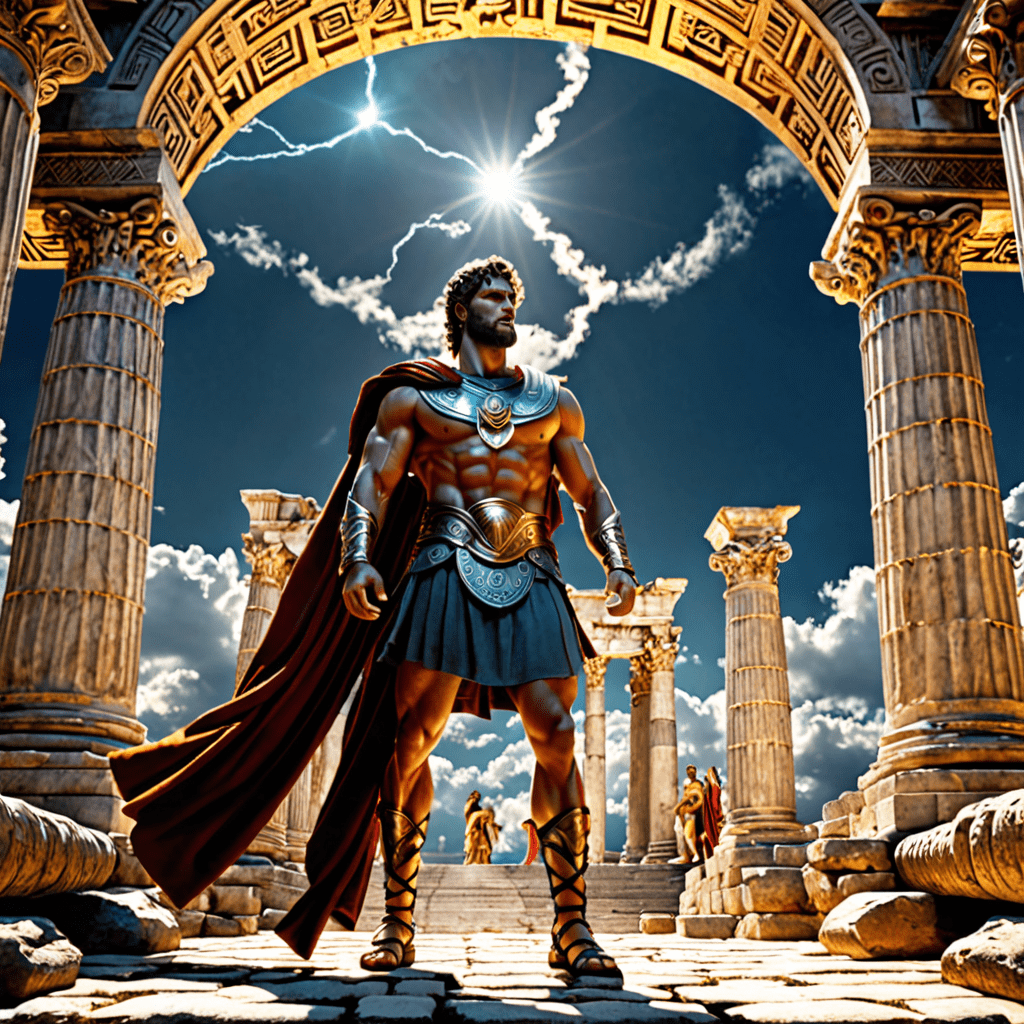The Symbolism of Boundlessness and Limitation in Roman Mythology
Exploring the Depths of Roman Mythology
Roman mythology is rich with symbolism that reflects the complexities of human experiences and emotions. Within these myths, two contrasting themes often emerge – boundlessness and limitation. Let’s delve into the significance of these themes and how they are portrayed in Roman mythology.
Boundlessness: The Infinite Potential
In Roman mythology, boundlessness is often associated with concepts of infinity, endless possibilities, and the vast expanse of the universe. One prominent representation of boundlessness is found in the figure of Jupiter, the King of the Gods. Jupiter’s power and authority are limitless, symbolizing the infinite potential for growth, expansion, and abundance.
Another mythological figure that embodies boundlessness is Janus, the two-faced god of beginnings and transitions. Janus represents the infinite cycles of time, the duality of existence, and the limitless opportunities presented by change and transformation.
Limitation: The Constraints of Mortality
On the other hand, limitation in Roman mythology often symbolizes the constraints of mortality, the fragility of human life, and the boundaries that define our existence. The story of Sisyphus, condemned to an eternity of rolling a boulder uphill only for it to roll back down, illustrates the struggles and limitations imposed on mortals by fate and divine decree.
Similarly, the character of Narcissus, who fell in love with his own reflection and was ultimately consumed by his own vanity, represents the limitations of the human ego and the destructive consequences of self-absorption and hubris.
The Balance of Boundlessness and Limitation
In Roman mythology, the interplay between boundlessness and limitation serves as a reminder of the delicate balance between the grandeur of the divine realm and the humbling constraints of human existence. While boundlessness offers limitless potential and growth, limitation reminds us of our mortality and the boundaries that shape our individual journeys.
By exploring these themes within Roman mythology, we gain a deeper understanding of the complexities of life, the cyclical nature of existence, and the eternal struggle between the infinite aspirations of the soul and the finite realities of mortality.
FAQ: The Symbolism of Boundlessness and Limitation in Roman Mythology
What does boundlessness symbolize in Roman mythology?
In Roman mythology, boundlessness often symbolizes freedom, infinity, and the vast possibilities of the universe. It represents the limitless potential for growth, creativity, and exploration.
How is limitation portrayed in Roman mythology?
Limitation in Roman mythology is typically depicted as a boundary or restriction that serves as a challenge or obstacle for the gods and mortals. It symbolizes constraints, rules, and the inherent limitations of mortal existence.
What gods or goddesses embody boundlessness in Roman mythology?
Gods like Janus, the two-faced deity of beginnings and transitions, and Saturn, associated with time and the cycles of life, can symbolize boundlessness in Roman mythology. They represent the eternal and unbounded nature of certain aspects of existence.
Are there any myths that specifically highlight the symbolism of limitation in Roman mythology?
One example is the myth of Prometheus, who faces the punishment of being bound to a rock for defying the gods and giving fire to humanity. This tale symbolizes the consequences of exceeding boundaries set by the divine order.





